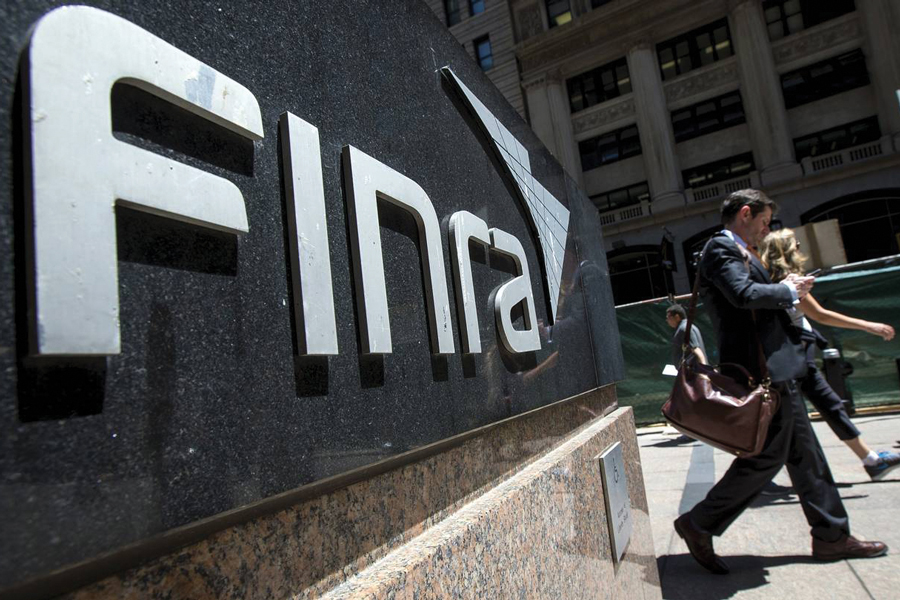

Brokers who sell unregistered securities will have to file with Finra pitches they’ve made to retail investors in addition to material describing the offering.
The Financial Industry Regulatory Authority Inc. will require that brokers file retail communications — such as web pages, slide decks, summaries, teasers, fact sheets and investor packets — related to private placements, according to a regulatory notice. The rule change is scheduled to go into effect Oct. 1.
Brokers already have to file with Finra the offering document — known as the private placement memo — within 15 days of the first sale. Retail communications to 25 or more investors will now be due at the same time. Private securities generally can only be sold to sophisticated investors who meet certain income and net-worth thresholds.
The broker-dealer self-regulator said many member firms have been filing retail sales material related to private placements. But the extra paperwork could require some brokerages to make changes in how they promote the offerings.
Some firms, for instance, may need to revise canned emails and other pitches they’ve been using for years, said Richard Kerr, a partner at K&L Gates.
“It’s a significant procedural change for brokers who serve as placement agents,” Kerr said. “They’re going to have to adapt. There will be some growing pains, as certain slides in pitch books need to be amended or pulled entirely to address feedback received from Finra.”
The rule change reflects Finra’s growing interest in how brokerages are portraying performance metrics, said Tim Foley, counsel at Alston & Bird.
“Finra has maintained a very restrictive view about performance targets and views them as inherently misleading,” Foley said. The regulator “looks closely at any presentation of expected operating metrics to ensure they don’t represent predicted or targeted rates of return, which Finra prohibits.”
The private market has become an increasingly popular venue for startup companies to acquire funding. In 2019, securities registered with the Securities and Exchange Commission accounted for $1.2 trillion of new capital, while $2.9 trillion was raised through the sale of private securities, according to the SEC.
The SEC last year approved streamlining rules and increasing the amount of capital that can be raised through private securities. The agency also broadened the definition of a sophisticated, or accredited, investor to allow more people to purchase unregistered securities.
Opening private markets wider to ordinary investors was a priority for former SEC Chairman Jay Clayton. The SEC under Chairman Gary Gensler and a Democratic majority likely will take a more measured approach to private markets.
The agency has indicated on its rulemaking agenda that it is likely in coming months to request public comment “on ways to further update the commission’s rules related to [private] offerings to more effectively promote investor protection.”
Private placements, which often produce lucrative payments for financial advisers, are often cited by the SEC, Finra and state regulators as one of the leading causes of investor harm. Finra’s new retail communication requirement shows regulators will be keeping an eye on the booming market for unregistered securities.
“We continue to see companies raise capital through private placement securities rather than [initial public offerings], and broker-dealers should expect to see this increased level of scrutiny on business practices for the foreseeable future,” Foley said.
Finra’s enhanced oversight of private placements complements the SEC’s broker standard of conduct, Regulation Best Interest, Kerr said.
“Creating [the retail communications requirement] is consistent with the movement from Finra and the SEC in recent years to protect retail investors,” Kerr said. “It fits nicely with how the SEC framed Reg BI and other rule changes.”

Executives from LPL Financial, Cresset Partners hired for key roles.

Geopolitical tension has been managed well by the markets.

December cut is still a possiblity.

Canada, China among nations to react to president-elect's comments.

For several years, Leech allegedly favored some clients in trade allocations, at the cost of others, amounting to $600 million, according to the Department of Justice.
Streamline your outreach with Aidentified's AI-driven solutions
This season’s market volatility: Positioning for rate relief, income growth and the AI rebound
